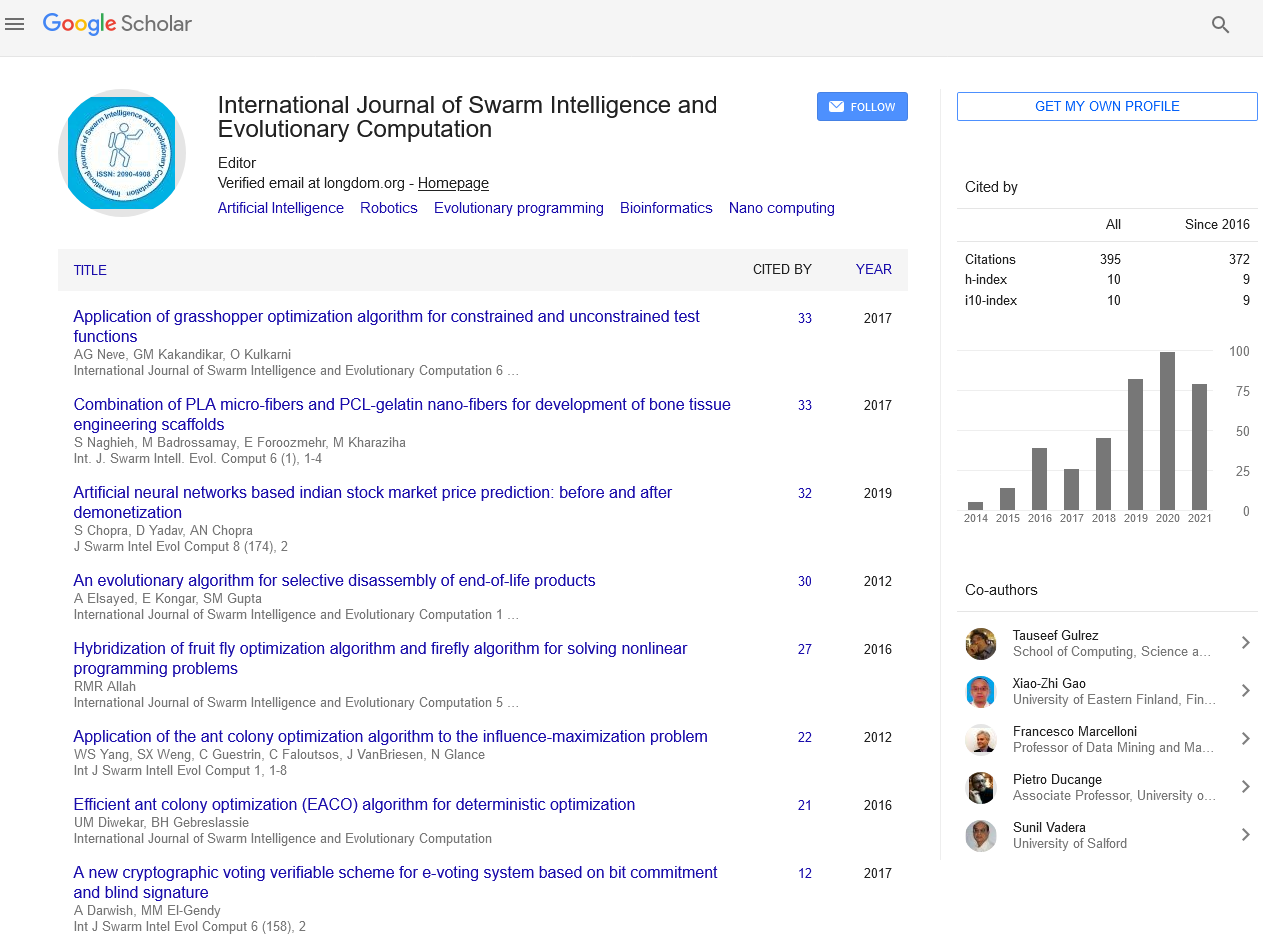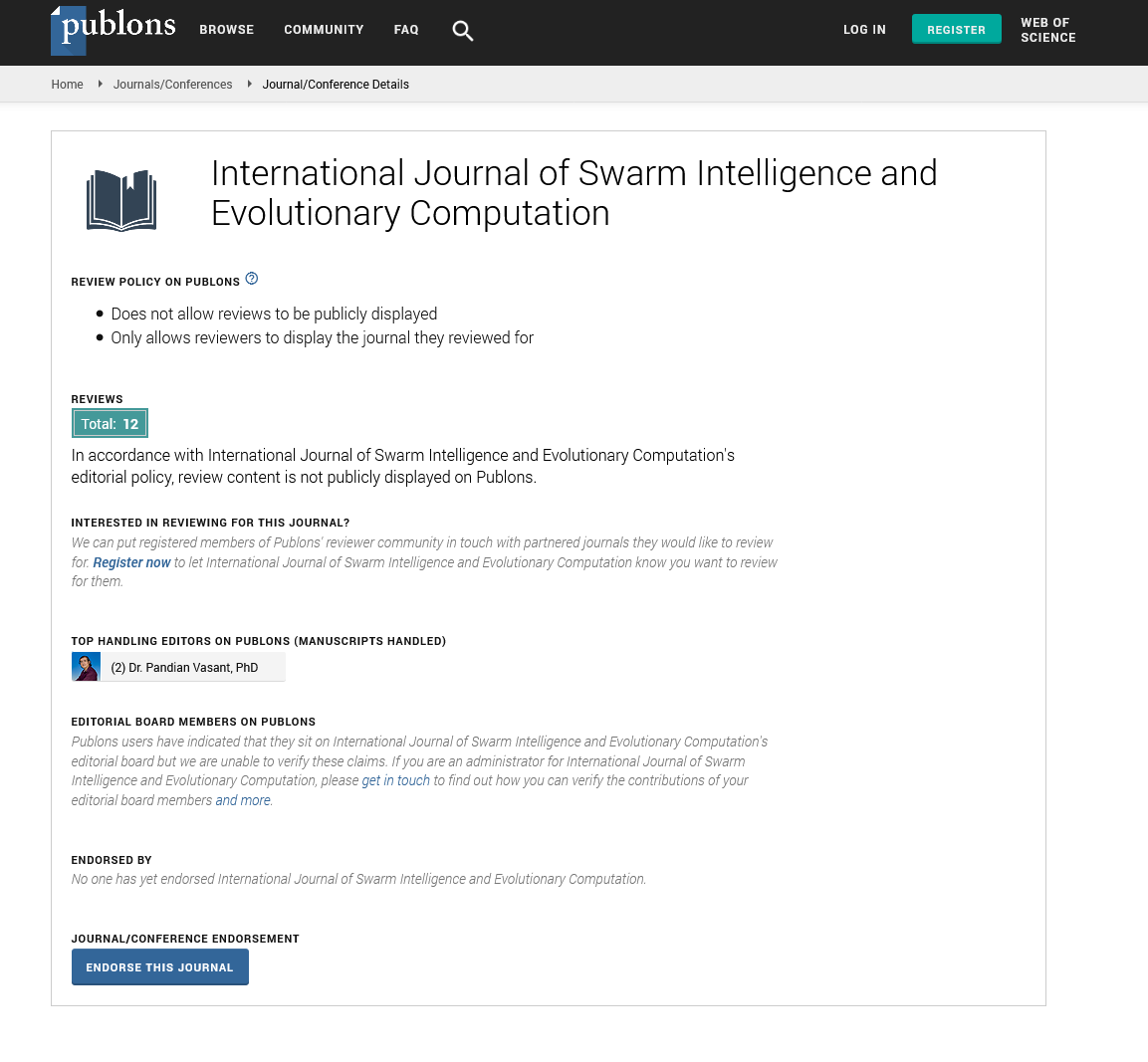Indexed In
- Genamics JournalSeek
- RefSeek
- Hamdard University
- EBSCO A-Z
- OCLC- WorldCat
- Publons
- Euro Pub
- Google Scholar
Useful Links
Share This Page
Journal Flyer

Open Access Journals
- Agri and Aquaculture
- Biochemistry
- Bioinformatics & Systems Biology
- Business & Management
- Chemistry
- Clinical Sciences
- Engineering
- Food & Nutrition
- General Science
- Genetics & Molecular Biology
- Immunology & Microbiology
- Medical Sciences
- Neuroscience & Psychology
- Nursing & Health Care
- Pharmaceutical Sciences
Commentary - (2023) Volume 12, Issue 6
Deep Learning's Transformative Impact: Revolutionizing Real-World Applications
Josh Richardson*Received: 23-Oct-2023, Manuscript No. SIEC-23-24067; Editor assigned: 25-Oct-2023, Pre QC No. SIEC-23-24067 (PQ); Reviewed: 08-Nov-2023, QC No. SIEC-23-24067; Revised: 15-Nov-2023, Manuscript No. SIEC-23-24067 (R); Published: 24-Nov-2023, DOI: 10.35248/2090-5008.23.12.338
Description
Deep learning algorithms, inspired by the structure and function of the human brain, have shown remarkable prowess in solving complex problems that were previously deemed insurmountable. By leveraging neural networks with multiple layers, deep learning models excel at tasks such as image and speech recognition, natural language processing, recommendation systems and more.
Deep learning in image recognition and computer vision
One of the most prominent applications of the deep learning lies in image recognition and computer vision. Convolutional Neural Networks (CNNs), a type of deep learning architecture, have achieved unprecedented accuracy in tasks like object detection, facial recognition, autonomous driving, and medical imaging analysis. Industries ranging from the automotive to healthcare have benefitted immensely from these advancements, enabling enhanced diagnostics, safer transportation systems, and improved surveillance technologies.
Natural Language Processing (NLP) and language translation
Advancements in NLP powered by deep learning models have transformed how machines understand and generate human language. Recurrent Neural Networks (RNNs) and Transformer models have revolutionized language translation, sentiment analysis, Chabot’s, and content generation. Companies leverage these technologies for customer service automation, personalized content recommendations, and multilingual communication, fostering global connectivity and accessibility.
Healthcare innovations
Deep learning has made significant strides in healthcare, contributing to early disease detection, personalized treatment plans, and medical image analysis. From diagnosing diseases in radiology images to predicting the patient outcomes using electronic health records, deep learning models assist healthcare professionals in making more accurate diagnoses and treatment decisions, ultimately improving patient care and outcomes.
Transportation
The transportation industry benefits from deep learning in various ways, notably in autonomous vehicles. Through the analysis of sensor data, including cameras, LiDAR, and radar, these vehicles navigate roads, interpret traffic signs, and make split-second decisions, advancing the prospects of safer and more efficient transportation.
Financial services and fraud detection
In the financial sector, deep learning algorithms are employed for risk assessment, fraud detection, algorithmic trading, and customer service automation. These models analyse vast amounts of financial data, identify patterns, and detect anomalies in real-time, mitigating risks and securing transactions for the financial institutions and their customers.
Challenges and ethical considerations
Despite its incredible potential, deep learning encounters challenges such as data biases, interpretability issues, and computational requirements. Moreover, ethical concerns regarding data privacy, algorithmic bias, and job displacement necessitate careful consideration and regulation to mitigate potential adverse effects.
Future directions
The evolution of deep learning continues to evolve rapidly, with ongoing research focusing on overcoming its limitations. Advancements in explainable AI, reinforcement learning, and continual improvements in neural network architectures promise further breakthroughs, potentially revolutionizing how industries operate.
Conclusion
Deep learning continues to drive innovation across diverse sectors, offering unprecedented capabilities in the processing, analyzing, and understanding complex data. Its impact on real-world applications, from healthcare and finance to transportation and language processing, signifies a paradigm shift in how it approaches problem-solving and decision-making. As research and the development in deep learning progress, its potential to revolutionize industries and enrich our daily lives further solidifies its position as a transformative technology of the 21st century.
Citation: Richardson J (2023) Deep Learning's Transformative Impact: Revolutionizing Real-World Applications. Int J Swarm Evol Comput. 12:338.
Copyright: © 2023 Richardson J. This is an open-access article distributed under the terms of the Creative Commons Attribution License, which permits unrestricted use, distribution, and reproduction in any medium, provided the original author and source are credited.


